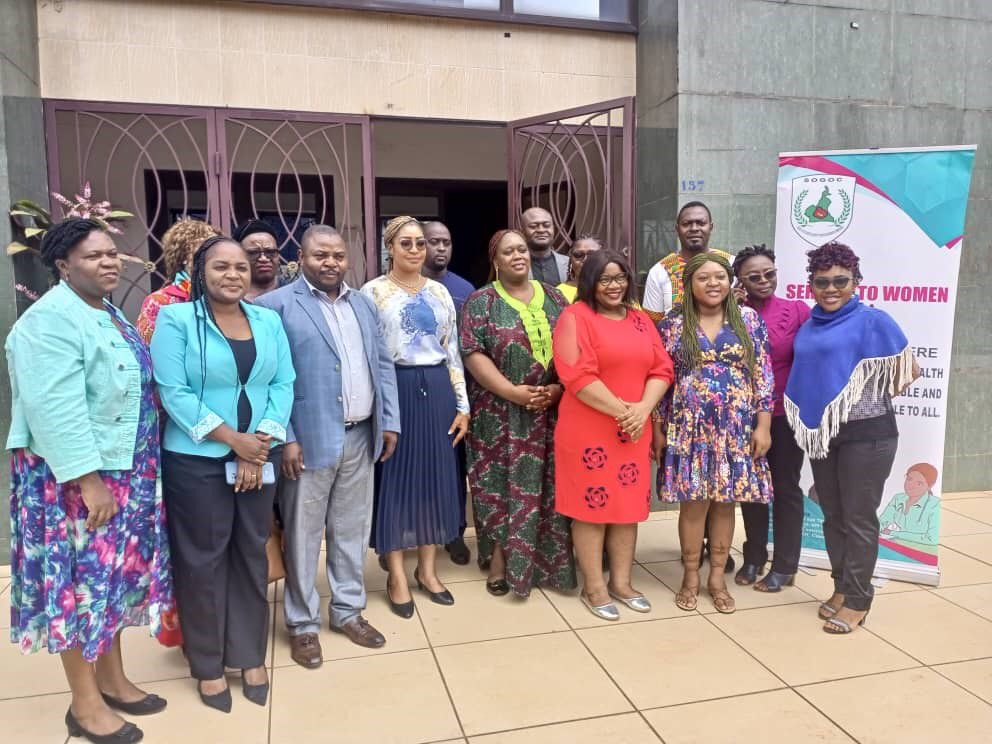Stakeholders involved in the Advocacy for Comprehensive Abortion Care, ACAC project, have taken a commitment on May 3rd to work to reduce maternal mortality and disabilities linked to unsafe abortions, and also to step up their advocacy for safe abortion accesses across the national territory for eligible cases.
This took place during a ceremony to launch the extension of the ACAC project in Yaoundé. The project has been designed as a four-year flagship program being implemented by the Society of Gynaecologists and Obstetricians of Cameroon, SOGOC.
Addressing ACAC stakeholders at the launching on behalf of SOGOC president, the Secretary General of the organisation, Dr Mwadjie Darolles, said the extension of the project aims to improve safe abortion access for eligible cases nationwide, strengthen capacity of members in the domains of communication and fundraising towards sustainability.
The SOGOC scribe, who is a Gynaecologist-Obstetrician, added that the extension also seeks to build networks that will accompany SOGOC Cameroon in the realisation of the improved safe abortion access for eligible cases within the context of Cameroonian law.
Dr Mwadjie underscored the need for the media and all partners of SOGOC to play key roles in assisting the body achieve its objectives.
“We want the public to know that today, women are still dying of complications of abortion because they don’t know that the law provides particular instances where they can afford for abortion care,” the SOGOC scribe stated, clarifying that within the laws of the land, abortion is protected under particular circumstances.
“Legal abortion in Cameroon is possible when the pregnancy is as a result of rape, and when the health of the mother is in danger, that is when the pregnancy puts the health of the mother in serious danger,” Dr Mwadjie detailed, while regretting the cumbersome procedures for the judges to ascertain that a woman seeking abortion must have been raped.
“The challenge concerning the law is the application of the law because it is not a medical diagnosis to say that someone has been rape or not but the decision of the judiciary and sometimes the procedure are very long,” she explained, adding that the delay at times is prolonged to the extent that the woman who was raped finally puts to birth while seeking abortion.
“One of our challenges is to see how we can apply these laws in the context of pregnancy and how we can reduce the process and practice abortion in a secured way”, she added.
On her part, ACAC Project Manager, Yenjong Rita epse Ataubo, detailed that the project has been extended for a period of eight months to span April to December 2023.
“In this next phase, we are going to continue with the advocacy…we are focusing on ensuring that the administrative and legal procedures for eligible cases to get abortion services are solidified because as it is now, the procedures are not very clear,” Yenjong stated.
She said the ACAC project has so far recorded strides in trying to state those procedures through the launch of the referral pathways for eligible cases.
Yenjong said the ACAC project intends to vulgarise the referral pathways and disseminate it nationwide so that all stakeholders engaged in ensuring that abortion services are being rendered to eligible cases know exactly what to do.
“With this document, we hope that eligible cases can have these services within 72 hours. In this next phase, we are going to continue with this advocacy and continue with sensitisation as well as work a lot with the media as our main partners,” she added.
Amidst challenges of being misunderstood during advocacy, ignorance on the fact that abortion is not completely banned in the country but …




